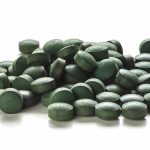Gallstones can significantly impact your health, but you can take proactive steps to reduce your risk. Transforming your diet and lifestyle requires practical strategies that focus on nutrition, exercise, and hydration. With a few conscious choices, you can bolster your body’s defenses and promote overall wellness. Explore key tactics to reshape your habits, lower your gallstone risk, and embrace a healthier life. Your journey to well-being starts here.
Understanding Gallstones and Their Risks
Gallstones are hardened deposits that form in the gallbladder, a small organ beneath the liver. These deposits can vary in size and are primarily composed of cholesterol or bilirubin. There are two main types: cholesterol gallstones, the most common, and pigment gallstones, which are smaller and darker.
In the same genre : Exploring the Impact of Early Cognitive Rehabilitation on Traumatic Brain Injury Recovery: A Path to Better Outcomes
Health risks associated with gallstones can be significant. They may lead to blockages in the bile duct, causing severe pain, infection, or even pancreatitis. Recognising the risk factors is crucial for prevention. Common factors include obesity, rapid weight loss, a diet high in fat and cholesterol, and certain medical conditions such as diabetes. Women, particularly those who are pregnant, on hormone replacement therapy, or taking birth control pills, are at a higher risk.
Prevention strategies are essential to reduce the likelihood of gallstone formation. Maintaining a healthy weight through a balanced diet and regular exercise is fundamental. Incorporating more fibre-rich foods and reducing intake of refined carbohydrates and saturated fats can also help. Staying hydrated and avoiding rapid weight loss are additional preventive measures. Being aware of these strategies and risks can empower individuals to make informed health decisions.
Additional reading : Unlocking Memory: Do Cognitive Training Apps Boost Retention for Individuals with Dementia?
Dietary Changes to Lower Gallstone Risk
Adopting a strategic diet can significantly reduce the risk of developing gallstones. Emphasizing low-fat foods is paramount, as they help prevent the formation of cholesterol gallstones. Opt for lean meats, fish, and low-fat dairy products. Incorporating high-fiber foods is equally important. Whole grains, fruits, and vegetables are excellent sources of fiber, which aids in digestion and reduces the likelihood of gallstone formation.
Recommended Dietary Patterns
A balanced diet rich in fiber and low in saturated fats is recommended. This includes plenty of fruits, vegetables, and whole grains, which not only provide essential nutrients but also help maintain a healthy weight.
Foods to Include
- Fruits: Apples, pears, and berries are particularly beneficial.
- Vegetables: Leafy greens and cruciferous vegetables like broccoli and Brussels sprouts.
- Whole Grains: Brown rice, oats, and quinoa.
Foods to Avoid
Avoid high-fat and processed foods, which can increase cholesterol levels and contribute to gallstone development. This includes fried foods, fatty cuts of meat, and processed snacks. Reducing the intake of refined sugars and carbohydrates is also advisable, as they can exacerbate weight gain and increase gallstone risk.
Lifestyle Habits for Gallstone Prevention
Incorporating healthy lifestyle changes is essential for gallstone prevention. Regular exercise plays a significant role by maintaining a healthy weight and improving digestion. Engaging in activities such as walking, swimming, or cycling for at least 150 minutes per week can be beneficial. These exercises help regulate cholesterol levels and reduce the risk of gallstone formation.
Hydration is equally crucial. Drinking adequate water aids in digestion and helps keep bile in the gallbladder fluid, reducing the chance of gallstone development. Aim for at least eight glasses of water daily to support overall health and gallstone prevention.
Managing stress and ensuring adequate sleep are often overlooked but vital components. Chronic stress can affect digestion and increase gallstone risk. Incorporating stress-reduction techniques such as yoga or meditation can be helpful. Likewise, maintaining a consistent sleep pattern supports metabolic processes and reduces stress, further aiding in gallstone prevention.
By focusing on these lifestyle changes, individuals can significantly lower their risk of developing gallstones. Emphasizing exercise, hydration, stress management, and sleep are practical steps toward a healthier lifestyle and gallstone prevention.
Expert Insights and Research Findings
Recent medical research has provided valuable insights into gallstone prevention. Studies have shown that a diet low in saturated fats and high in fibre can significantly reduce gallstone risk. Research indicates that individuals who consume more fruits, vegetables, and whole grains have a lower incidence of gallstones. This supports the emphasis on dietary changes as a preventive measure.
Healthcare professionals offer expert advice on additional prevention strategies. They recommend maintaining a consistent exercise routine and staying hydrated to support bile fluidity and digestion. Experts also highlight the importance of gradual weight loss rather than rapid dieting, which can increase gallstone risk.
New guidelines emphasize the role of lifestyle modifications in gallstone prevention. These include adopting a balanced diet, regular physical activity, and stress management techniques. Professionals suggest incorporating mindfulness practices, such as yoga, to manage stress, which indirectly impacts gallstone formation.
By following these expert recommendations, individuals can make informed decisions about their health. Staying updated with the latest research and guidelines empowers people to take proactive steps in preventing gallstones. Emphasizing a holistic approach that combines diet, exercise, and stress management is key to reducing gallstone risk effectively.
Practical Tips and Recipes
Incorporating healthy recipes into your routine can significantly aid in gallstone prevention. Opt for simple recipes that fit into a gallstone-preventive diet, focusing on low-fat and high-fibre ingredients. For instance, a vegetable stir-fry with quinoa can be both satisfying and beneficial. Use olive oil instead of butter to keep fat content low.
Meal planning is a crucial strategy for maintaining a gallstone-friendly diet, especially for those with busy lifestyles. Plan your meals weekly, ensuring a balance of lean proteins, whole grains, and plenty of fruits and vegetables. Preparing meals in advance can help avoid the temptation of unhealthy choices during hectic days.
When dining out, making healthier food choices is essential. Look for menu items that are grilled, steamed, or baked rather than fried. Request dressings and sauces on the side to control fat intake. Choosing dishes with plenty of vegetables and whole grains can also support your dietary goals.
By incorporating these practical tips and recipes, you can enjoy delicious meals while effectively managing your risk of gallstones. Making informed decisions about your diet is a proactive step towards better health.
When to Seek Medical Advice
Understanding when to seek medical guidance for gallstones is crucial for timely intervention. Symptoms that necessitate a consultation include persistent abdominal pain, nausea, and jaundice. These symptoms may indicate a blockage or infection, requiring immediate attention.
Upon experiencing these symptoms, a healthcare professional might recommend diagnostic procedures. Ultrasound is the most common and effective method for detecting gallstones. It provides a clear image of the gallbladder, helping to identify the presence and size of gallstones. In some cases, additional tests like a CT scan or MRI may be necessary to assess complications.
Once diagnosed, treatment options vary based on the severity and symptoms. While lifestyle changes can mitigate risk, they may not be sufficient for everyone. In such cases, medical interventions become necessary. Cholecystectomy, the surgical removal of the gallbladder, is a common procedure for severe cases. For those unsuitable for surgery, non-surgical approaches like oral dissolution therapy might be considered, though these are less effective and take longer.
Consulting a healthcare provider ensures that individuals receive appropriate treatment options, tailored to their specific condition and health needs. Early intervention can prevent complications and improve outcomes.











